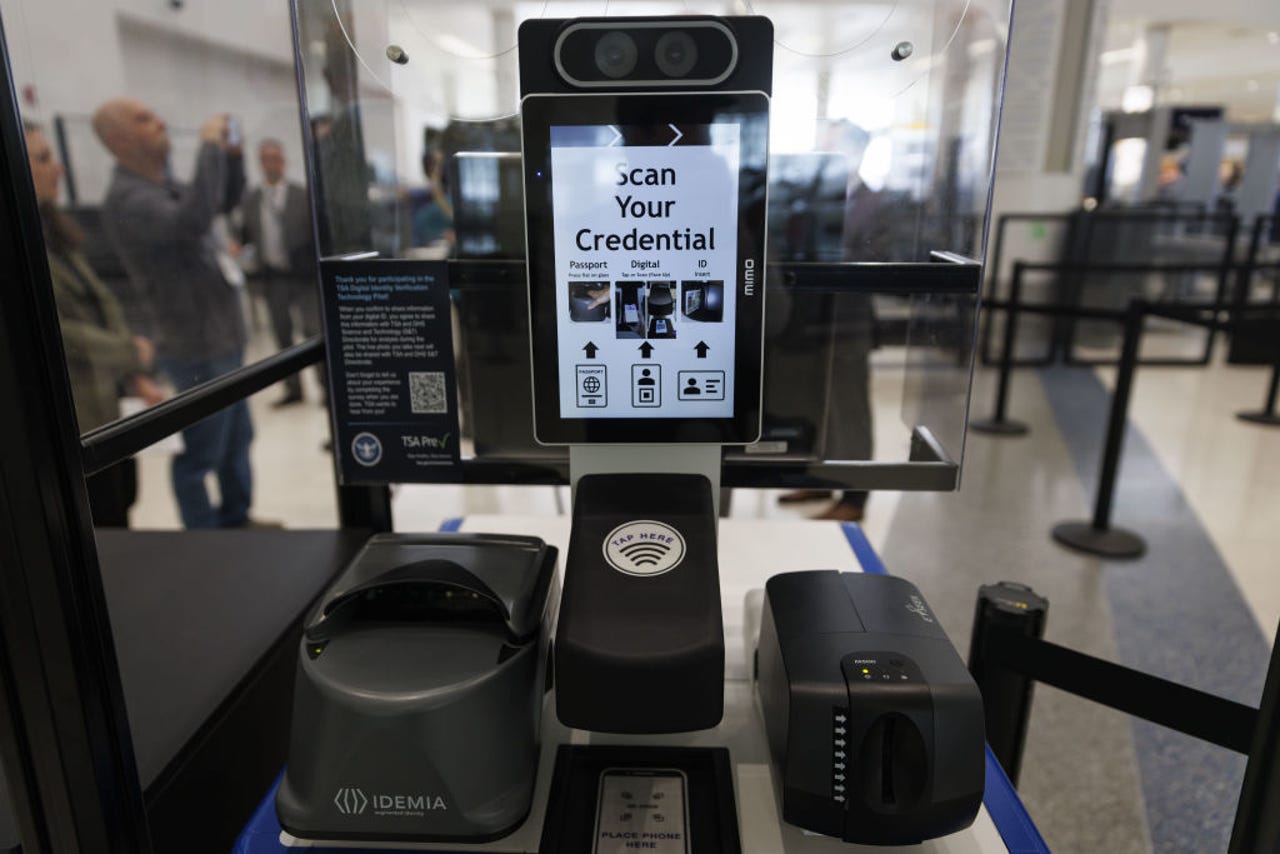































 Bloomberg/Contributor/Getty Images
Bloomberg/Contributor/Getty Images If you're traveling through an airport in Atlanta, Boston, Dallas, Detroit, Las Vegas, Los Angeles, Miami, Orlando, and a handful of other U.S. airports, you may notice a new biometric measure TSA is using to verify your identity.
TSA is testing facial recognition to see if the technology can enhance security and make TSA screening more efficient. After passengers insert their driver's license or passport into the TSA card reader, their faces will be processed by a camera that compares them to the picture on their identification.
Also: AI may compromise our personal information if companies aren't held responsible
According to the Associated Press, this facial recognition method ensures TSA can verify a person's identity and confirm their form of identification is valid. Once the process is complete, a TSA agent approves the screening, and the passenger is on their way.
The TSA says this facial recognition process is voluntary and that it works, but some U.S. lawmakers don't agree with implementing biometric surveillance in domestic airports. U.S. Senators Jeffrey Merkley, Edward Markey, Cory Booker, Elizabeth Warren, and Bernie Sanders penned an open letter to the TSA to express their concerns.
The TSA says passengers can refuse facial recognition at some U.S. airports, but the five senators are wary that passengers aren't aware they can and won't know how to, as the TSA has not made it clear. Senator Merkley says during his experience witnessing passengers use the facial recognition scanner, TSA agents were not informing passengers of their rights or option to proceed through security without facial recognition.
Also: ChatGPT and AI are wreaking havoc on cybersecurity in exciting and frightening ways
In their letter, the five senators also mentioned facial recognition's propensity to perpetuate racial bias. Facial recognition software is notorious for disproportionately misidentifying individuals with darker skin. This pitfall in the technology's capabilities can have severe consequences for millions of people, which concerns the five lawmakers.
These senators are also concerned about privacy concerns, as facial recognition lacks transparency, consent, and encryption, making Americans vulnerable to hackers and cybersecurity attacks.
Also: These experts are racing to protect AI from hackers. Time is running out
Moving forward, the lawmakers hope TSA will be more transparent about how they are using travelers' biometric data. They want to know if biometric data is shared with other government agencies, how TSA plans to keep that data safe, if travelers who refuse facial recognition will receive negative consequences or intimidation, and if the TSA will release data surrounding the accuracy and volume of its facial recognition program.
 Etiquetas calientes:
Inteligencia Artificial
innovación
Etiquetas calientes:
Inteligencia Artificial
innovación